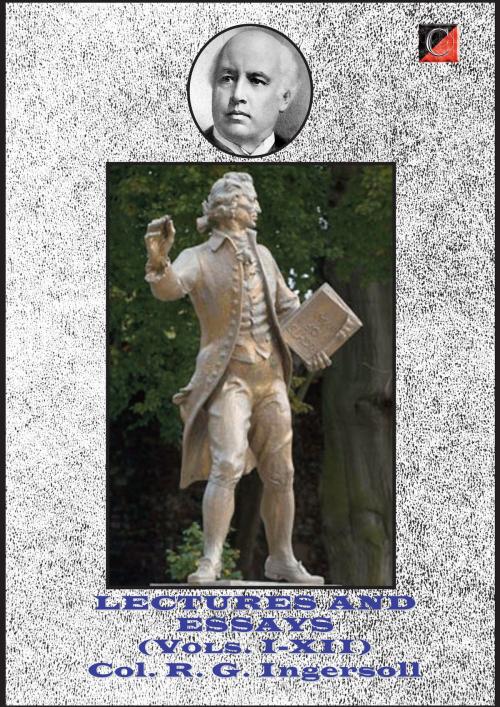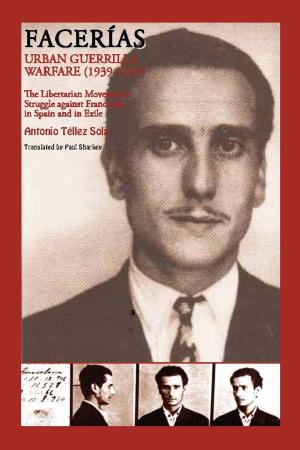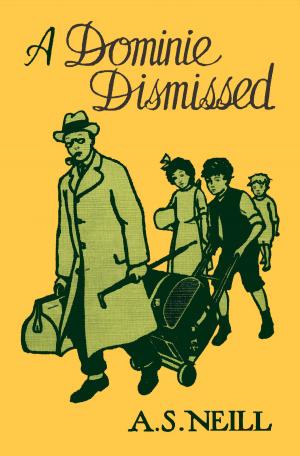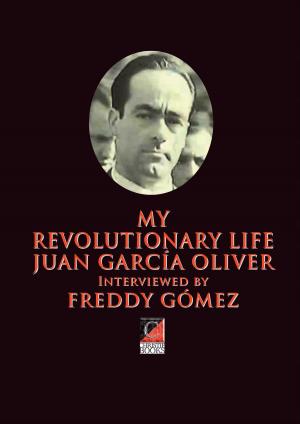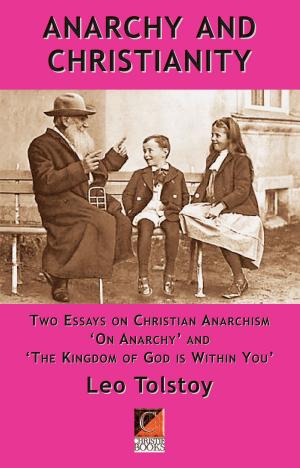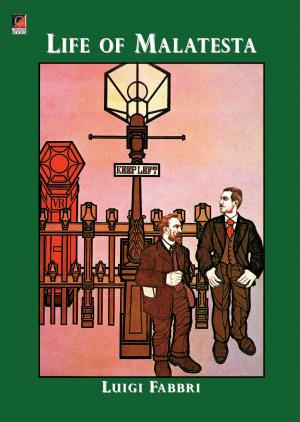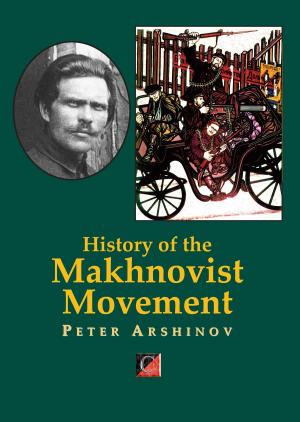LECTURES AND ESSAYS (Vols. I-XII)
Nonfiction, Religion & Spirituality, Philosophy, Political, Ethics & Moral Philosophy, Bible & Bible Studies, Commentaries| Author: | Robert G. Ingersoll | ISBN: | 1230000740241 |
| Publisher: | ChristieBooks | Publication: | October 25, 2015 |
| Imprint: | ChristieBooks | Language: | English |
| Author: | Robert G. Ingersoll |
| ISBN: | 1230000740241 |
| Publisher: | ChristieBooks |
| Publication: | October 25, 2015 |
| Imprint: | ChristieBooks |
| Language: | English |
The complete collection of the Lectures and Essays (Vols. I-XII) of Robert Green “Bob” Ingersoll (August 11, 1833 – July 21, 1899), nicknamed “The Great Agnostic” — one of outstanding orators, humanists, agnostics and freethinkers of his time — whose radical views on religion, superstition, slavery, woman's suffrage, Shakespeare, Voltaire and other issues of the day continues to exert a powerful influence across the generations and continents.
“… It is beyond question that in its severer forms theology has an extremely noxious influence—an influence from which, so great is the vitality of error, it is a hard task for humanity to deliver itself. Ingersoll's work has a positive aspect of undeniable value. In his belief that human activity is limited to the present life he was a Secularist. In his rejection of the problematical he was an Agnostic. Beyond the known he declined to go. One life at a time was enough for him. If there should prove to be a future state, no man, he held, would be punished for being unable to believe in it. The ideas of God and immortality are speculative conceptions, on which negative opinions are not merely defensible, but legitimate. Ingersoll believed in being true to himself, and in recognising the eternal limitations of human thought. His vehement criticism of the Bible was prompted by the conviction that the Bible has been a serious stumbling-block to the progress of civilisation; and if he was at times too uncompromising, it must be said that the extravagances of the popular theology furnished him with ample excuse. His constructive work consisted in emphasising the claims of the secular life, with its basis of certain knowledge, as against the claims of the religious life, with its basis of dubiety. The schoolhouse was his cathedral, and the universe his Bible. He believed that happiness is the only good, reason man's only light, justice the only worship, humanity the only religion, and love the only priest. He believed in moral causation, in liberty, labour, intelligence, education, good health and good fellowship all round. Such a gospel may omit some of the finest elements of a well-rounded life, but a man who believes in this gospel as fervently as Ingersoll did cannot go far wrong in forcibly proclaiming it. Ingersoll was reproached with hammering away too persistently at the falsities and barbarisms of the Old Testament. Here he found a splendid opportunity, and he made relentless use of it. The believer naturally objects to the salt being so unmercifully rubbed into the sore place, but it is questionable whether a milder treatment would have served the purpose Ingersoll desired to attain. Nor would he have taken so decided a line if the falsities and barbarities in question had not been alleged to form an essential part of a divine revelation. Had the Bible always been recognised as what it is—a collection of purely human writings—Ingersoll would have let it alone. Extravagant claims provoke bitter rejections. Excessive emphasis mars a good deal of his work ; but while “overdoing it” is always inartistic, it is frequently efficacious. The proof of Ingersoll's success is the impression he made on the orthodox world. Mr. Smith assures us that he revolutionised theology in America ; and it is certain that, as a result of these and similar attacks, doctrines which were once held firmly are now held doubtingly, or altogether abandoned. Within my own recollection leaders of Christian thought have defended such atrocities as the massacres of the Canaanites simply and solely because a book believed to be divinely inspired attributed them to the direct command of God. Against this warping of the moral sense by doubtful authority no protest could be too strong. And when we remember that this idea of inspiration assumed to guarantee wrong was never a certainty, but always, in reality, gravely doubtful, we perceive that a rough-and-ready scepticism may get nearer the truth than learned piety ..."
The complete collection of the Lectures and Essays (Vols. I-XII) of Robert Green “Bob” Ingersoll (August 11, 1833 – July 21, 1899), nicknamed “The Great Agnostic” — one of outstanding orators, humanists, agnostics and freethinkers of his time — whose radical views on religion, superstition, slavery, woman's suffrage, Shakespeare, Voltaire and other issues of the day continues to exert a powerful influence across the generations and continents.
“… It is beyond question that in its severer forms theology has an extremely noxious influence—an influence from which, so great is the vitality of error, it is a hard task for humanity to deliver itself. Ingersoll's work has a positive aspect of undeniable value. In his belief that human activity is limited to the present life he was a Secularist. In his rejection of the problematical he was an Agnostic. Beyond the known he declined to go. One life at a time was enough for him. If there should prove to be a future state, no man, he held, would be punished for being unable to believe in it. The ideas of God and immortality are speculative conceptions, on which negative opinions are not merely defensible, but legitimate. Ingersoll believed in being true to himself, and in recognising the eternal limitations of human thought. His vehement criticism of the Bible was prompted by the conviction that the Bible has been a serious stumbling-block to the progress of civilisation; and if he was at times too uncompromising, it must be said that the extravagances of the popular theology furnished him with ample excuse. His constructive work consisted in emphasising the claims of the secular life, with its basis of certain knowledge, as against the claims of the religious life, with its basis of dubiety. The schoolhouse was his cathedral, and the universe his Bible. He believed that happiness is the only good, reason man's only light, justice the only worship, humanity the only religion, and love the only priest. He believed in moral causation, in liberty, labour, intelligence, education, good health and good fellowship all round. Such a gospel may omit some of the finest elements of a well-rounded life, but a man who believes in this gospel as fervently as Ingersoll did cannot go far wrong in forcibly proclaiming it. Ingersoll was reproached with hammering away too persistently at the falsities and barbarisms of the Old Testament. Here he found a splendid opportunity, and he made relentless use of it. The believer naturally objects to the salt being so unmercifully rubbed into the sore place, but it is questionable whether a milder treatment would have served the purpose Ingersoll desired to attain. Nor would he have taken so decided a line if the falsities and barbarities in question had not been alleged to form an essential part of a divine revelation. Had the Bible always been recognised as what it is—a collection of purely human writings—Ingersoll would have let it alone. Extravagant claims provoke bitter rejections. Excessive emphasis mars a good deal of his work ; but while “overdoing it” is always inartistic, it is frequently efficacious. The proof of Ingersoll's success is the impression he made on the orthodox world. Mr. Smith assures us that he revolutionised theology in America ; and it is certain that, as a result of these and similar attacks, doctrines which were once held firmly are now held doubtingly, or altogether abandoned. Within my own recollection leaders of Christian thought have defended such atrocities as the massacres of the Canaanites simply and solely because a book believed to be divinely inspired attributed them to the direct command of God. Against this warping of the moral sense by doubtful authority no protest could be too strong. And when we remember that this idea of inspiration assumed to guarantee wrong was never a certainty, but always, in reality, gravely doubtful, we perceive that a rough-and-ready scepticism may get nearer the truth than learned piety ..."
